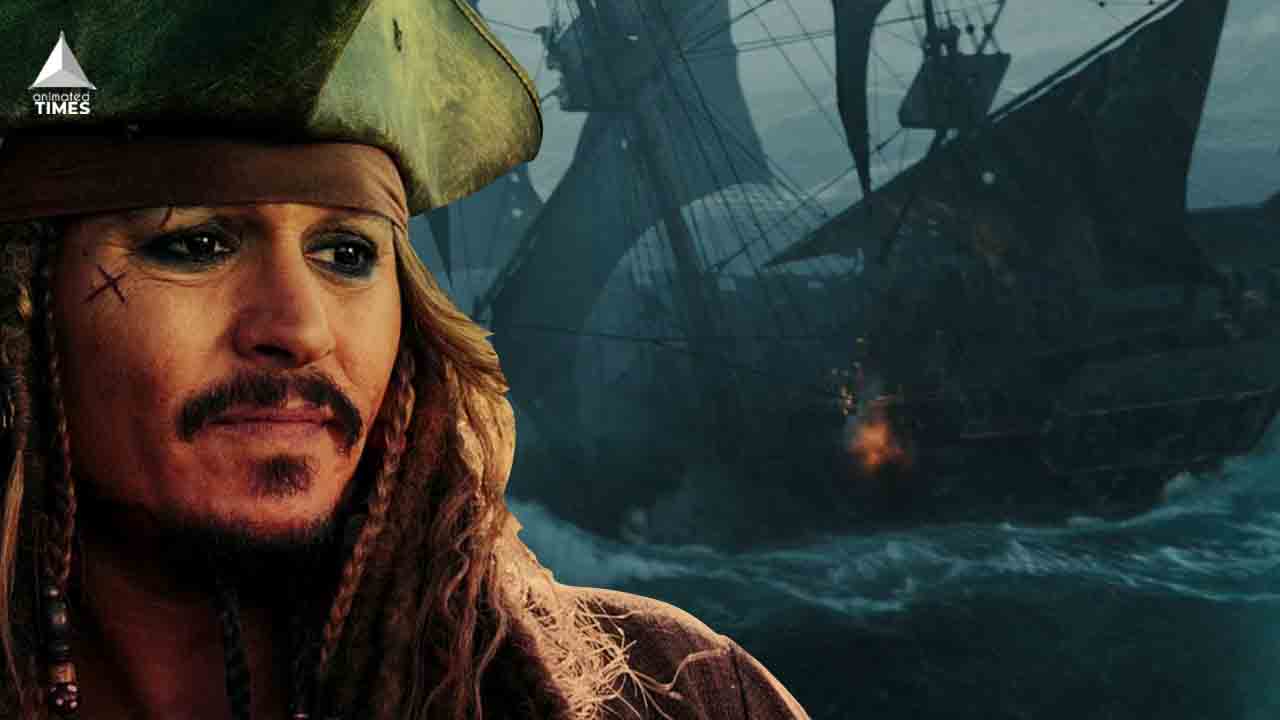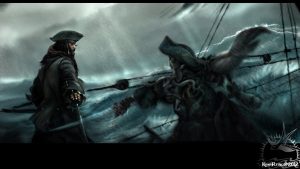These Deleted Scenes From Pirates Of The Caribbean Scene Would Have Changed Everything
Scenes are often deleted for good reasons. Sometimes, they may change the movie’s pace or spirit. It may be the case where they offer only unnecessary descriptions, increasing the movie’s runtime for no good reason. In various cases, these scenes end up getting included as bonus material in DVD releases, so that they can be seen by the fans after, without even having the moviegoing experience change for them. Usually, one can say — or theorize, at least — why the makers cut the deleted scenes from the movie, and maintain the fact that it was not ideal to include them in the movie.
It may not be true for one specific scene from the movie, “Pirates of the Caribbean: At World’s End,” however. In 2007, the third installment in the “Pirates of the Caribbean” franchise surprisingly gave away some clues about Captain Jack Sparrow’s (Johnny Depp) character and backstory which was was never screened before in the series.
Sparrow’s past life, as the fans can remember, is not touched even a bit during the course of the movies. In fact, a four-minute scene gives him more depth — and tells us why, in “The Curse of the Black Pearl,” he’s introduced in a dinghy that’s taking on water, looking at his abandoned ship from far away, and till the time he arrives at the dock, he’s present at the top of the mast and plainly goes ashore as the dinghy disappears into the waves.
Here’s what the deleted scene revealed:
The deleted scene features a conversation between Jack Sparrow and Cutler Beckett
The scene being discussed happens when Sparrow is a prisoner on board the East India Trading Company’s flagship, and also features Lord Cutler Beckett (Tom Hollander). Jack is thrown into Beckett’s office and is reminded by the villain that they had earlier had a deal according to which the pirate was to deliver cargo for him, but Jack “liberated” it instead. Replying very casually to this, Jack says, “People aren’t cargo, mate” — as he upturns items looking for the heart of Davy Jones (Bill Nighy), which is stowed safely aboard another ship, as is told to him by Beckett.
Jack Sparrow, in this conversation, is reminded by Beckett of his debt to Davy Jones: At some point, Beckett sunk Jack’s ship to take pay him back for letting go of that cargo. Jack had promised his soul to the merciless ruler of the Seven Seas in exchange for upheaving Jack’s ship and a long time of servitude. Jack tells Beckett the debt has been paid, but Beckett says, “And yet, here you are.” Plainly, this deal with Davy Jones is not suited to go on with this evil seafarer. During the conversation, Jack tells Beckett, “You have spared me any possibility of ending up as anything other than what I am, and for that, I truly thank you.”
Then Beckett comes to the basics. He wants to know more about who the pirate lords are, where they’re meeting as the Brethren Court, and the motive of the Nine Pieces of Eight.
The scene may be deleted, but Jack Sparrow’s origin story has been documented in a prequel novel
Jack can sometimes be an ethically enigmatic character, keeping in mind he is a pirate who sacrificed 100 souls to save his own skin (as suggested by a fan who says this was a direct response to the 100 souls that Beckett says he “liberated”). At the same time, Beckett is portrayed as being on the side of law and order.
If this scene is not present in the movie, then fans do not have any idea why Sparrow and Beckett have this hostility toward each other, or why there was a deal between Jack and Davy Jones in the first place. Hence, fans don’t even know how Jack Sparrow entered the criminal life as a pirate.
While the scene was removed — therefore making it uncertain whether or not it is still a part of the franchise’s canon — another source is out there that agrees to this same story. A.C. Crispin’s prequel book “Pirates of the Caribbean: The Price of Freedom,” tells the story in length (via Goodreads), and it mainly pivots on a 25-year-old Jack Sparrow, who is actually hired by the East India Trading Company designated as the first mate. When pirates attack his ship, and his captain loses his life in the same, he may be looking for a promotion. Cutler Beckett can offer him that, but instead, he first tells the future pirate, to go to a magical island on a treasure hunt. Jack realizes that Beckett has planned to enslave the people there, and is determined to fail the official’s plans.
Hence, the scene in the movie would have established Sparrow’s backstory, providing him with a more reputable character (although some might say this isn’t necessary) — or at least some context to some of his less savory actions. At this point, of course, the possible reboot of the “Pirates of the Caribbean” movies could always change everything up, but that remains to be seen.







